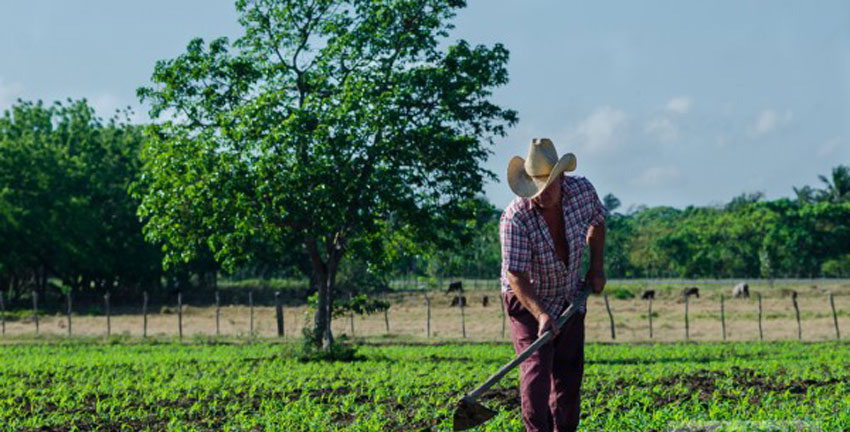
Agriculture is one of the sectors most affected by the economic, commercial, and financial blockade imposed on Cuba by the United States in February 1962. This genocidal policy has intensified in recent years, with additional restrictions designed to make the government and the population give in.
Las Tunas, Cuba.- This hostile policy has significantly influenced food production for more than six decades. It has also hampered the possibilities of exporting certain items and made it more expensive to import those that cannot be produced here, and other valuable material resources, as well.
In Las Tunas, the eight agricultural programs, the seven government programs, and the four livestock production programs are not being implemented. This is due to negligence on the part of private and state landowners and a lack of control on the part of the authorities. However, much of this depends on the genocidal measure established by Washington.
To exemplify the above, here is a sample of the damage caused to agriculture, livestock, tobacco development, and other activities that, although they occur throughout the country, are evident in Las Tunas and the daily life of its residents.
- Cuba cannot export its leading products, such as tobacco, honey, charcoal, and fresh tropical fruits, to the northern territory. Nor can it export the biological product Vidatox-30 CH, from the Labiofam Business Group, with proven efficacy in improving cancer patients.
- The lack of animal feed or some of its components has a direct impact on the rearing of pigs and laying hens, and this situation has led to a drastic decrease in the production of eggs and pork, one of the most popular products among Cubans.
- There is a lack of fertilizers, fungicides, herbicides, and pest control chemicals for tobacco, rice, and other specialized crops. At the same time, it is difficult to acquire seed potatoes, peppers, carrots, onions, and other crops.
- The instability in fuel purchases -and the persecution of the ships that transport it- affects the clearing of land, the irrigation of crops, the transport and marketing chain of harvests, the transport of livestock to the slaughterhouse, and the collection of milk.
- It also hinders access to state-of-the-art technology that would boost agricultural development, such as combine harvesters, harvesters, tractors and their implements, irrigation machines, solar panels, scales, metals and electrodes, and welding rods.
There are not enough veterinary medicines, cages for poultry and rabbits, nitrogen for artificial insemination, and other supplies such as machetes, files, and gloves. In addition, there are problems accessing bank loans and scientific exchanges.
In general terms, the blockade is the main obstacle to the development of the agricultural sector in Cuba, and its negative impact has repercussions on society. In the face of the shortages caused by the economic siege, traditional methods are applied, which are useful in small areas but limit the yields required by the country.